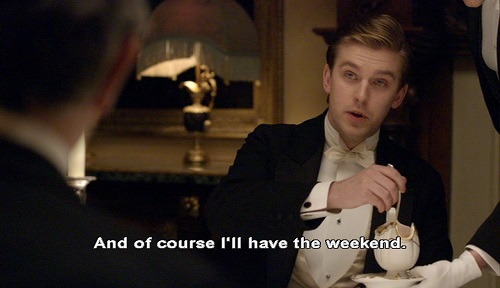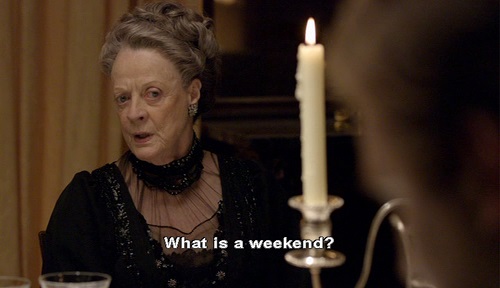Most country-house parties were weekend affairs. Born out of a burgeoning railway network – there was after all no point in going away for a weekend if you spent the entire weekend travelling to where you wanted to be – and helped along by the rise in car ownership, the very word “weekend” had only just joined the lexicon of leisure. A contributor to Notes and Queries at the end of the nineteenth century wrote that in Staffordshire, “if a person leaves home at the end of the week’s work to spend the evening of Saturday and the following Sunday with friends at a distance, he is said to be spending his week-end at So-and-so”. Was this usage confined to Staffordshire, he asked?
By the 1920s the country-house weekend was an institution, although in polite circles it still wasn’t actually called a weekend. The accepted phrase was “Saturday-to-Monday”. The Duchess of Buccleuch recalled that it was “awfully non-U to call them weekends. I remember being surprised that anyone should use the term.” The phrase also distinguished the leisured classes from those who had to be at work first thing on Monday morning, and for whom a weekend began on Saturday afternoon and ended on Sunday evening. People invited you “for a Saturday to Monday and that was precisely what they meant”, said Loelia Ponsoby. “It would have been very rude to leave on Sunday night.”
Adrian Tinniswood, The Long Weekend.
Life in the English Country House Between the Wars.
Jonathan Cape, 2016.


Downton Abbey
(Merci à D.M. de m’avoir rappelé cette scène.)
Aucun commentaire
Laisser un commentaire





